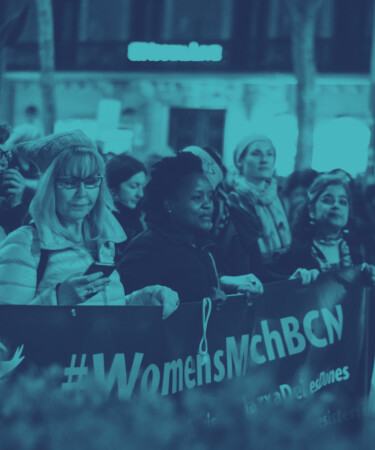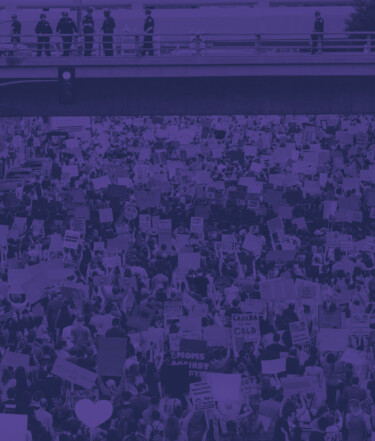
Equal rights and Social Participation
31 cases
OUR MISSION
Everyone has the same right to participate in society - regardless of income, origin or identity. The reality is that social inequality is on the rise, with many people living below the poverty line without sufficient access to housing or healthcare. Discrimination and exclusion are part of everyday life for queer people, people with a history of immigration and people with disabilities, for example. We use strategic complaints to campaign for equal rights for all people.
Why we stand up for equal rights and anti-discrimination
Which problem are we addressing?
Freedom of opinion, freedom of assembly, freedom to choose an occupation - many people are familiar with the so-called civil liberties in the German Basic Law. But freedom is of little value if laws are discriminatory or lack the most basic necessities. This is why the Basic Law formulates the principle of equality in Article 3 and the principle of the welfare state in Article 20. Neither promise is being realized today.
Discrimination and stigmatization are part of everyday life for many people, such as queer people, people of color and people with disabilities. They are still disadvantaged - simply because they are who they are. In addition, good living conditions and social security are not a reality for everyone in Germany. Many people live below subsistence level, without sufficient access to housing or healthcare. People with a history of migration and refugees are particularly often affected by exclusion and poverty.
What precisely are we doing to solve the problem? What is the GFF's role?
We support the fight for equal rights and social participation by legal means. We take action against laws, authorities and companies that discriminate against members of certain groups. And we go to court to enforce social rights. Our aim is to reach landmark decisions that establish justice and enable all people to lead a dignified life.
We support affected people in claiming their rights and also in telling their stories. By drawing attention to injustices, we stimulate social debate. We support the important work of civil society partner organizations in the areas of advice and advocacy through strategic legal action.
Which rights do we promote?
The general principle of equality and the prohibitions of discrimination derived from it are enshrined in Article 3 of our constitution and in the EU treaties and form the core of a number of international human rights agreements. These prohibitions are lessons learned from past crimes against humanity and were hard-won by disadvantaged groups.
Article 1 of the Basic Law and the welfare state requirement in Article 20 of the Basic Law stipulate that the state must guarantee every person in Germany a minimum subsistence level worthy of human beings. This is not just about bare survival, but also about a minimum level of participation in social, cultural and political life. Legislators and authorities are also obliged by the UN Social Covenant to guarantee social rights. These include the right to adequate housing, the right to education and the best possible standard of health.
Refugees in Germany are just as entitled to equal treatment and appropriate care as everyone else. In practice, however, refugees are often afforded second-class protection of their basic rights: social welfare for asylum seekers is below the minimum subsistence level, unlimited data is collected and passed on about them and the police illegally enter collective accommodation for asylum seekers.





